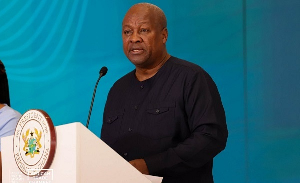The Gas Industry: Gas Markets and the Organisation of a Potential Gas Value Chain in Ghana
Natural gas has advantageous attributes and superior performance relative to some conventional fuels. With first oil imminent from the Jubilee Oil Field, it is pertinent to give serious thoughts to natural gas due to its potential importance in Ghana’s energy mix. The growth of the natural gas industry in Ghana would depend markedly on the resilience of the gas value chain and the strength of the gas markets. The degree of viability of the natural gas industry depends on the gas value chain in which several links form a continuous system. Any flaw in the chain affects the whole system. In fact, the saying that a chain is as strong as its weakest link is a perfect analogy for such a scenario. There is therefore less logistical flexibility in the gas value chain from the burner tip to the gas wells.
Monopoly
In the natural gas industry, the existence of, and the need for an interconnected system makes it capital intensive, including a proclivity towards monopoly. The monopoly is a way of protecting and securing the huge investment made. This demands that there must be a reasonable period within which to amortise the investment made, followed by making reasonable returns. A case in point with regards to monopoly in the natural gas industry can be found in South Africa, where Sasol – the synthetic fuel company - has a ten-year monopoly in both production and transmission, in return for a pricing cap on the gas from the Temane (Mozambique)-Secunda (South Africa) pipeline. Sasol, arguably the biggest company on the African continent, converts coal and gas to liquid fuels (CTL and GTL). The objective of the concession granted to Sasol was to bring investments to the industry in South Africa. The concession was therefore a carrot intended to drive investments to that nascent industry of the energy sector. It was envisaged that after ten years, the use of natural gas would have gained popularity in South Africa, on condition of more accessible proven reserves being found. The offshore Mossel Bay gas reserves are virtually exhausted, and the country is frantically exploring for more gas, including the possibility of bringing more gas from the Kudu gas field in Namibia.
Spatial Development Initiatives
Ghana needs to identify several areas as growth nodes for spatial development initiatives (SDIs). Using SDIs, the government could foster sustainable industrial development in places where the highest incidences of poverty and unemployment occur. The SDIs could be classified into local and industrial development zones (IDZs), as well as second generation types for ease of handling and proper scheduling of operations. Further to the growth nodes that can provide the anchor projects, it is imperative to establish a gas market. Prior to the establishment of the latter, the market dynamics that impact on the natural gas value chain need to be properly assessed and taken care of to avoid failure of the chain. The natural gas market may be classified into the following three main segments:
• Electricity generation;
• Bulk heating / cooling; and
• Feedstock for production of chemicals and synthetic fuels (synfuels).
In each of these segments, several factors should be considered to ensure optimal operations: the geographical spread of consumption, load factor of the consumption, concentration of consumption on large sites, and the price-setting mechanisms. Evaluation of the three segments with respect to these factors would assist in assessing the potential risks faced by role players in the industry.
Models for the Gas Value Chain
The Ghana gas value chain may be organised into the following four distinct models with respect to ownership of the elements in the chain:
Model 1: Full vertical integration
In this model, one company owns all the elements in the gas chain.
Model 2: One company is in charge of transmission and distribution
The company (usually state-owned) dictates volumes and prices to producers and consumers.
Model 3: The transmission company as trading company
The transmission company sells gas to big industries, regional transmission companies and distribution companies. Tariffs are not regulated and pipeline access is restricted non-discriminately. In this model, pipelines may be constructed by anyone, subject to minimum technical standards.
Model 4: Non-integrated, with regulated transmission sector
The different parts of the gas chain are separately organised. The distribution companies and end-users enter into gas purchase contracts directly with producers; while the regulator sets the principles for use of transmission lines (access and tariffs).
In general, it is not easy to determine which gas chain model is the “best.” Whereas choice is made on historical reasons, the following criteria are usually considered before a choice is made:
• Incidence of the abuse of power by the authorities;
• Encouragement of competition, and the economically efficient operation of the industry;
• Potential for expansion;
• Manageable role of the state, vis-à-vis an over ambitious role; and
• Simplification of the role of the state gas regulatory body.
There are advantages and disadvantages associated with each of the four models. This will be discussed in another article. While there is a global trend towards “unbundling” and privatisation, this is not necessarily the best option, particularly in developing countries, and for that matter Ghana. The hazop principle and sustainability guidelines must be carefully applied before a choice is made. It is equally important to undertake Integrated Resources Planning to ensure optimisation of gas resources. Thus, whatever model (or adapted model) is finally selected by Ghana must have been properly brainstormed to ensure that the benefits outweigh the costs. In addition, the model that is chosen by Ghana must be devoid of complications, and be practical enough to ease implementation. Owing to the fact that the required investments for the proper take off of the gas industry is huge, it may be necessary to float shares to garner funds; as the Government may not be able to provide all the capital required.
Gas Regulator
To assure proper development of the gas industry, a Gas Regulator needs to be established in Ghana to provide oversight functions to the industry. Considering the nascent nature of the upstream oil and gas sub-sector in Ghana, it is pertinent to build the institutional capacity of existing parastatals like BOST and GNPC with a view to playing meaningful roles in the gas value chain. As a boost in local content, all available expertise must be tapped to avoid domination of the industry by foreign experts, who may not understand the nuances of the local market dynamics. To prevent conflicting interests, new institutions could also be created to undertake some of the roles in the industry. What is usually lacking – project management – must be seriously considered as it has a lot of financial, logistical and timing constraints. Lastly, the needs of the communities living along swathes of the gas transmission pipelines must be catered for adequately. We need to do things right!
Joe Asamoah, Ph.D, an Energy, Oil & Gas and CDM consultant, may be reached at joasa2@yahoo.com.
Opinions of Wednesday, 1 December 2010
Columnist: Asamoah, Joe














